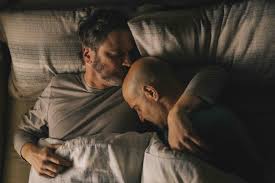Supernova
Supernova, 2021, 3 ¼ stars
Star power
Firth, Tucci light the way in Supernova
From The Orlando Weekly, January 30, 2021
A supernova is an explosion often caused by the spectacular demise of a dying star. Not surprisingly, that death has a profound effect on everything or, in the case of the new film from British writer-director Harry Macqueen (Hinterland), everyone it touches.
In Supernova, Stanley Tucci plays Tusker, a writer struggling with early-onset dementia. To escape the disease, if only briefly, he and his lifelong partner, Sam (Colin Firth), take a road trip through the English countryside, stopping to visit family and old friends in advance of a concert that Sam, an accomplished pianist, intends to perform as a capstone on his career. In this regard, the trip becomes their shared supernova.
When I met Stanley Tucci at the Sarasota Film Festival four years ago, he told me he admired Mitchell Garabedian, his character in Spotlight, because “all he’s trying to do is sort of fight the good fight.” One might say the same for Tusker. But unlike Garabedian, Tusker is fighting not for social justice, but for his own existence. So, for Tusker, it’s not just a good fight. It’s his only fight.
“I’m becoming a passenger, and I’m not a passenger,” Tusker tells Sam. “This thing is taking me to a place where I don’t want to go, and no one is going to be able to bring me back.”
Supernova isn’t the best film about dementia you’ll ever see. It’s not even the best film about dementia you’ll see in the next couple of months. That honor goes to The Father, starring Anthony Hopkins. But Supernova has a quiet, simple beauty to it. At a lean 93 minutes, it resembles a one-act play, but it’s powered by two actors with strong chemistry who need only a tiny fraction of that runtime to convince you they are deeply in love. That might be because they have shared a great friendship for 20 years, both on and off screen. Or it might be because of a little thing called acting.
Indeed, when questioned about whether straight men like Tucci and Firth should play gay, as both have done in the past, Tucci has said – and this critic agrees – that any actor should be allowed to play any character. Firth is more ambiguous, perhaps in a nod to the philosophy that historically underrepresented or stereotyped groups of people are the better choices to represent themselves in film. But denying these two friends a chance to play these parts would be nothing less than a crime.
Perhaps the greatest irony surrounding this issue is the fact that, for decades, LGBTQ actors were forced to play it straight, but now straight actors are called upon to play gay. I don’t know how Tucci and Firth feel about it, but this writer eagerly awaits the day – perhaps not in my lifetime – when we can ditch the alphabet soup and use a single letter, E for equality, both in film casting and in everyday life.
Circling back to my talk with Tucci, I recall him explaining how he chooses roles. Unable to come up with a single formula for picking parts, he said, simply, “Every movie is different.” But paramount in his decisions, he explained, were the people with whom he was going to work. For Supernova, he made one of the best choices of his career.
© 2021 Orlando Weekly / MeierMovies, LLC
